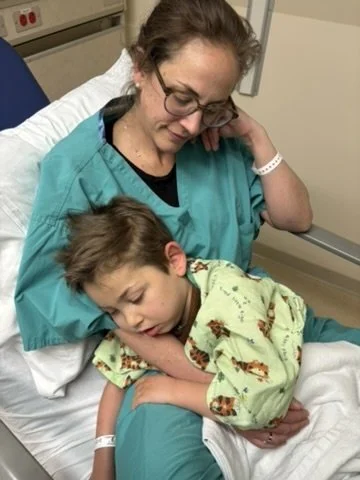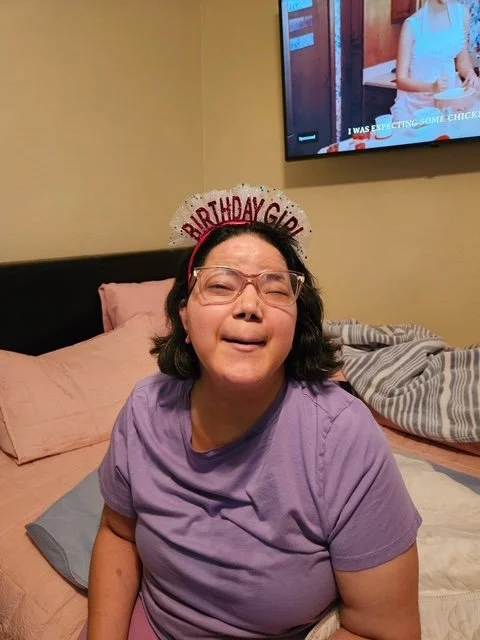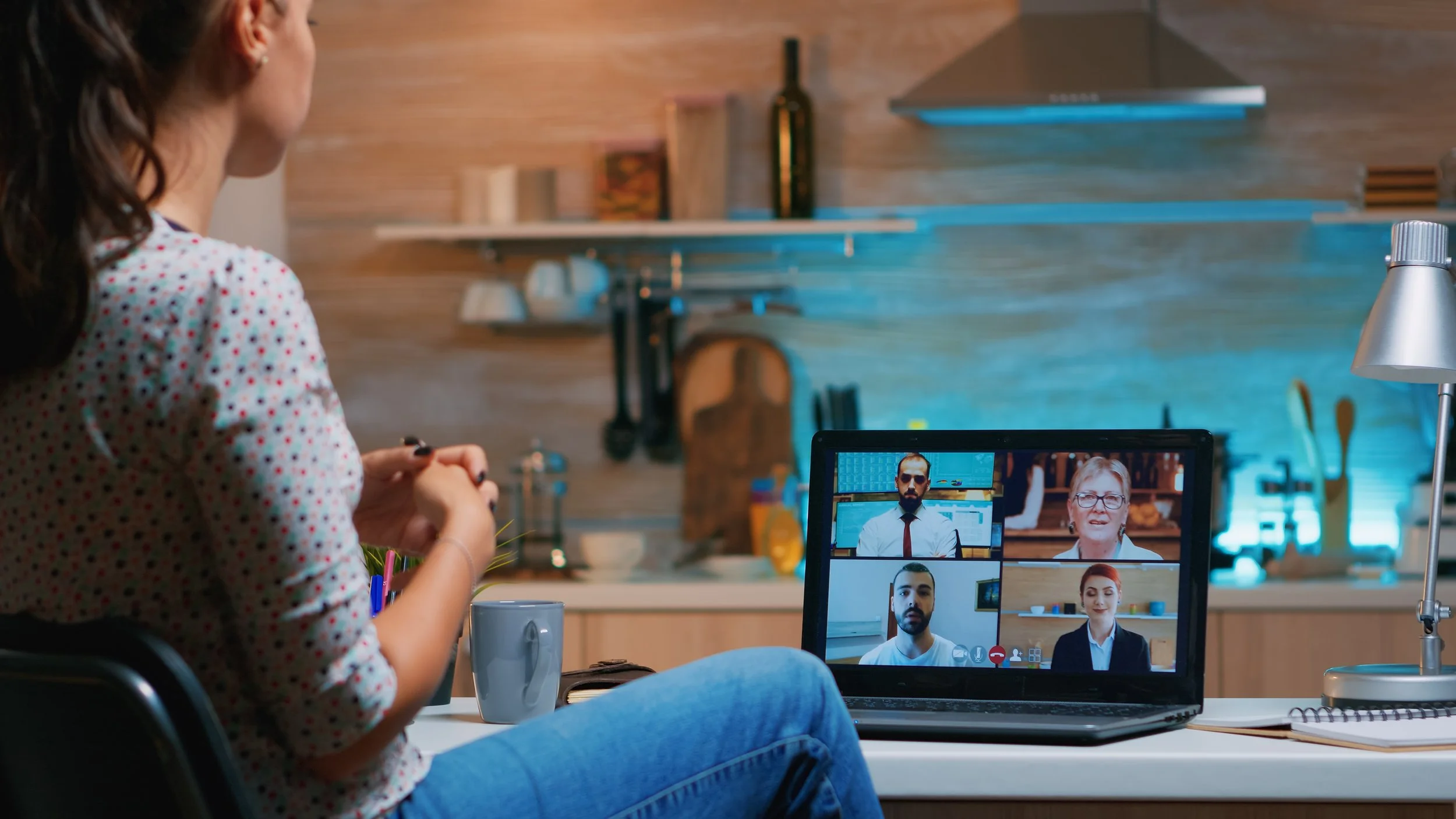Five Years of Waiting Rooms
By Laura Will
Over the last five years, my son and I have spent a lot of time in waiting rooms – neurology, gastroenterology, pulmonology, surgical - each room with chairs similarly grouped along walls adorned with overtly cheerful art, educational pamphlets, and fliers about clinical research. Nothing from the wall-to-wall rugs to the fluorescent lights has changed; however, my experience sitting there, next to Alden, looking around at the other people waiting, has transformed beautifully.
Feeling like a newbie, I used to quickly find a seat and rock Alden’s stroller back and forth as I inconspicuously glanced around, wondering why others were there. New to the role of being a medical mama, these spaces represented the upsetting alternate reality my parenting had become. Perhaps, I thought, I could garner strength from the other moms in the room? Perhaps, in the set of their shoulders I might know that it was going to be okay? But, mostly they were hunched and scrolling, or bouncing a bored toddler on their knees; they appeared as tired as I was, with a glazed look or furrowed brow. I’d then turn my attention to children in the room; and if there was a complex kid, one who looked sick or had a visibility disability, I would secretly try to glean some insight into their diagnosis. Why did they leave school today to be here? Did their doctors believe there was a gene gone wrong in them too? Could they be cured?
I am not proud of this approach, but it was part of my process. I was trying to figure out our own story. By comparing and contrasting, I was looking to see where we fit in, with our rare brain malformation, our g-tube, our expanding problem list. Perhaps I was searching for community, in the waiting room. I never found it. Inevitably Alden’s name was called, and off we’d go.
Over the last five years, I have gotten to know many children who live with medical complexity, disability, rare disease, life-limiting illness. Each one is accompanied by their own multi-layered, support team - mothers, fathers, family, and friends; along with teams of clinicians, teachers, therapists, and equipment specialists. These teams operate adjacent to waiting rooms, where they set up each child with uniquely individualized care, technology, and equipment that makes learning, play, communication, nutrition, and sports more accessible. People and love and expertise and technology and wheels (lots of wheels) - all together, working each day to provide dignity and joy in school, in community, and at home. At the center of this dynamic and complex care nexus is often a mother, trying with all her might to hold it all together.
Lately, when Alden and I enter a waiting room and I see a child with complex needs, I no longer wonder what went wrong. I no longer hypothesize about the diagnosis. I tend to see the child as a child, and I sense the care and attention that got that child there today. If their caregiver (usually Mom) and I make eye contact, I nod my head. Respect. I now know what it takes; we both do. It’s heavy and complicated; it’s sacrifice and commitment; it’s harrowing and humbling. What I am looking at is a rare form of parenting. In the waiting rooms now, I see extraordinary love in action.































